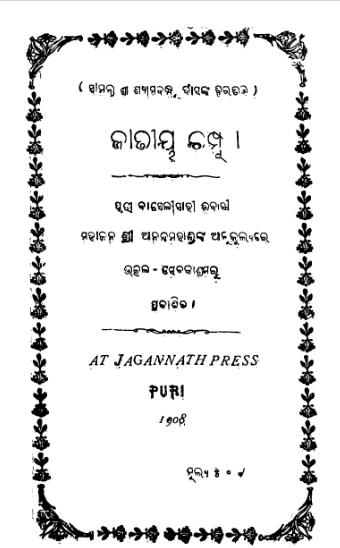Published in 1908, Jatiya Champu by Shyama Bandhu Das is a landmark work in the landscape of Bengali poetry, emblematic of the patriotic fervor and cultural renaissance that characterized early 20th-century India. As a pivotal figure in this literary movement, Das harnesses the power of poetry to articulate themes of national identity, cultural pride, and the collective aspirations of the Indian people during a time of colonial oppression.
The early 20th century was a period marked by rising nationalism and social reform across India. As the country was grappling with British colonial rule, a wave of cultural awakening swept through the arts and literature. Poets and writers sought to reclaim Indian culture and identity while also addressing the social issues of their time. Jatiya Champu, which translates to “National Ode” or Song of the Nation, is a direct response to this prevailing sentiment, aiming to inspire pride among the Bengali populace and unite them under the ideals of freedom and self-respect.
Jatiya Champu is rich in themes that explore the multifaceted nature of national identity. Das’s poetry weaves together elements of history, mythology, and contemporary social consciousness, creating a tapestry that celebrates the heritage of Bengal while also addressing its challenges. The title itself suggests a focus on collective identity—a call to recognize and celebrate the cultural roots shared by the people.
The structure of Jatiya Champu employs the traditional Champu form, which combines prose and verse to create a rhythmic and engaging narrative. This style enables Das to articulate complex ideas in a manner that is both accessible and evocative. The seamless blend of lyrical poetry with prose invites readers to reflect on the themes from multiple angles, making the work not only a literary piece but also a cultural commentary.
Das’s writing in Jatiya Champu is characterized by vivid imagery, metaphorical expressions, and a musical quality that captures the essence of his patriotic fervor. The use of rich metaphors allows him to evoke strong emotions while expressing the pride and resilience of the Bengali people. The incorporation of historical and mythological references adds depth to the poetry, connecting contemporary struggles with the timeless narratives of the past.
Each poem within the collection resonates with a powerful sense of urgency and hope. Das’s ability to evoke a sense of unity among diverse cultural threads reflects his deep understanding of the complexities of Indian identity. His work serves as both a celebration of Bengal’s heritage and a rallying cry for national consciousness.
Jatiya Champu has had a lasting impact on Bengali literature and continues to be celebrated for its thematic richness and lyrical beauty. Shyama Bandhu Das’s work stands as a precursor to later literary movements that further explored themes of nationalism and identity in Indian poetry. By instilling a sense of cultural pride and unity, Jatiya Champu contributed significantly to the strengthening of Bengali identity during a critical period in India’s history.
The book has also inspired subsequent generations of poets and writers, affirming the importance of literature as a medium for social change and cultural expression. Its messages of self-respect, resilience, and unity remain relevant, encouraging contemporary readers to reflect on their own identities and the shared narratives that shape them.
Books Info
| Books name | Jatiya Champu / ଜାତୀୟ ଚମ୍ପୁ |
| Author | Shyama Bandhu Das |
| No Of pages | 105 |
| Publisher | NA |
| Publication | 1908 |
| Printed At | Jagannath Press |
| Distributor | NA |

